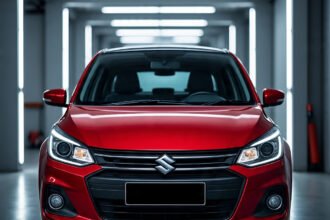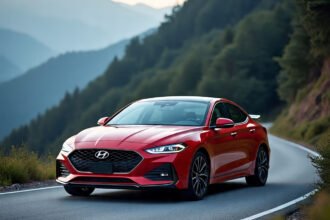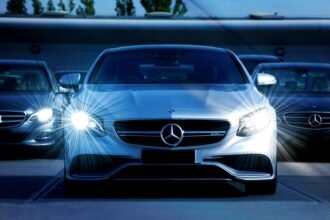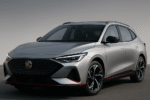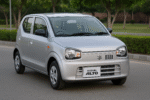1. Introduction
Toyota Motor Corporation, once a cautious trailblazer, is now moving aggressively to compete across several domains in the evolving automotive world. Whether it’s electric cars, performance machines, hydrogen fuel technology, or AI-driven systems, Toyota joins race with renewed urgency.
2. The Changing Landscape of the Auto Industry
The global automobile sector is undergoing a massive transformation, driven by climate change policies, shifting consumer preferences, and disruptive technology. EV startups like Tesla, legacy automakers like Ford and Volkswagen, and tech companies like Apple and Google are all influencing the space. Toyota, a company once hesitant to fully commit to EVs, has now stepped into the battlefield.
3. Toyota Joins Race for Electric Vehicles
Toyota joins race in EVs with an ambitious roadmap. Despite its early reluctance, the company now plans to launch over 30 new EV models by 2030 and aims to sell 3.5 million EVs annually by the same year. Its bZ (beyond Zero) electric series has already started with the bZ4X, an all-electric SUV.
Toyota is investing more than $70 billion globally into electrification, including EVs, hybrids, plug-in hybrids, and fuel cell vehicles. It has also created Toyota BEV Factory, a specialized unit aimed at speeding up the production of EVs.
4. Hybrid Legacy and Transition Challenges
Before jumping into full electrification, Toyota made history with the Prius, the world’s first mass-produced hybrid vehicle. Today, it leads the world in hybrid car sales with more than 20 million units sold globally.
However, this legacy has been a double-edged sword. While hybrids gave Toyota a green image, it delayed full EV development, making Toyota seem like a late entrant. But now, Toyota joins race to redefine its identity with bolder strategies.
5. Race to Solid-State Battery Dominance
In the race to improve EV performance and reduce charging times, Toyota is heavily investing in solid-state battery technology. Unlike lithium-ion batteries, solid-state batteries are expected to:
- Increase range by up to 800-1,000 km on a single charge
- Fully recharge in under 10 minutes
- Be safer and longer lasting
Toyota aims to commercialize solid-state batteries as early as 2027, potentially revolutionizing the EV market.
6. Toyota’s Commitment to Carbon Neutrality
Toyota joins race for environmental sustainability by setting ambitious targets:
- Achieve carbon neutrality by 2050
- Make all its vehicles in key markets carbon-neutral by 2035
- Ensure carbon-neutral manufacturing through solar power, green hydrogen, and recycling
Its holistic approach covers vehicle production, logistics, and even dealership operations.
7. Toyota Joins Race in Autonomous Driving
Toyota is also in the race for autonomous mobility through its subsidiary Woven by Toyota, which leads the development of:
- Advanced driver-assistance systems (ADAS)
- Self-driving technologies
- Smart city ecosystems (e.g., Woven City in Japan)
The company’s “Guardian” system is an alternative approach to fully autonomous driving, acting as an intelligent co-pilot rather than replacing the driver completely.
8. The GR Performance Division: Speed Meets Innovation
Toyota joins race in the performance segment through Gazoo Racing (GR), its in-house performance brand. With models like the GR Supra, GR Yaris, and GR86, Toyota is capturing the hearts of car enthusiasts.
More recently, it teased all-electric GR sports cars with simulated manual transmissions, aiming to preserve the driving thrill even in a zero-emission future.
9. Global Expansion Strategy
As Toyota joins race to conquer new markets, its global expansion plans include:
- Scaling up EV production in North America, China, and Europe
- Launching new EVs for India and Southeast Asia
- Strengthening hybrid presence in Africa and South America
Toyota is also building EV plants in the U.S., Japan, and Thailand to boost regional supply chains.
10. The Role of Toyota in Developing Markets
In countries like Pakistan, India, and Africa, Toyota is still focusing on hybrid models due to weak EV infrastructure. The Toyota Corolla Cross Hybrid is a popular model in such markets.
However, the company has confirmed it will launch EVs tailored to these regions by 2027, showing that even developing markets are on Toyota’s radar as it joins the global electrification race.
11. Toyota joins race Partnerships and Strategic Alliances
To fast-track innovation, Toyota joins race through collaborations:
- Subaru: Joint EV platform development
- Panasonic: Battery production
- Suzuki: Affordable hybrid and EV tech
- Mazda & Denso: Autonomous driving R&D
These alliances help Toyota leverage external expertise while reducing costs and development time.
12. Challenges Toyota joins race Faces
Despite its aggressive strategy, Toyota faces multiple challenges:
- Strong EV competition from Tesla, BYD, Hyundai, and VW
- Global chip shortages and supply chain disruptions
- Pressure from environmental activists and governments
- Skepticism from investors over its hybrid-first strategy
Still, Toyota is adapting rapidly to meet these headwinds head-on.
13. Consumer Response to Toyota joins race New Direction
Consumer response has been cautiously optimistic. While Toyota loyalists appreciate its hybrid tech, younger buyers are demanding full EVs. The launch of bZ4X was met with mixed reviews due to limited range and performance issues, but newer models are expected to fill the gap.
Surveys show that Toyota is still one of the most trusted automotive brands, giving it a competitive edge as it enters the EV and tech race.
14. Toyota joins race Future Plans Beyond 2030
Toyota has laid out a futuristic vision:
- Launch carbon-neutral GR sports cars
- Deploy Level 4 autonomous shuttles in Woven City
- Expand the use of hydrogen fuel cells beyond vehicles to industries
- Build a fleet of modular EV platforms adaptable for any body type
- Reduce battery costs by 50% through next-gen chemistry
Clearly, Toyota joins race not just to compete—but to lead it.
15. Conclusion
The statement “Toyota joins race” is no longer speculative—it’s a strategic reality. From pioneering hybrid tech to entering the EV, autonomous, and high-performance arenas, Toyota is now writing a bold new chapter in its legacy. Its diversified approach allows it to stay competitive across regions and segments, proving that even a century-old company can adapt, evolve, and lead in a fast-changing world.
As the global race for innovation heats up, all eyes are on how Toyota will not only keep pace but set the standard for what comes next in mobility.
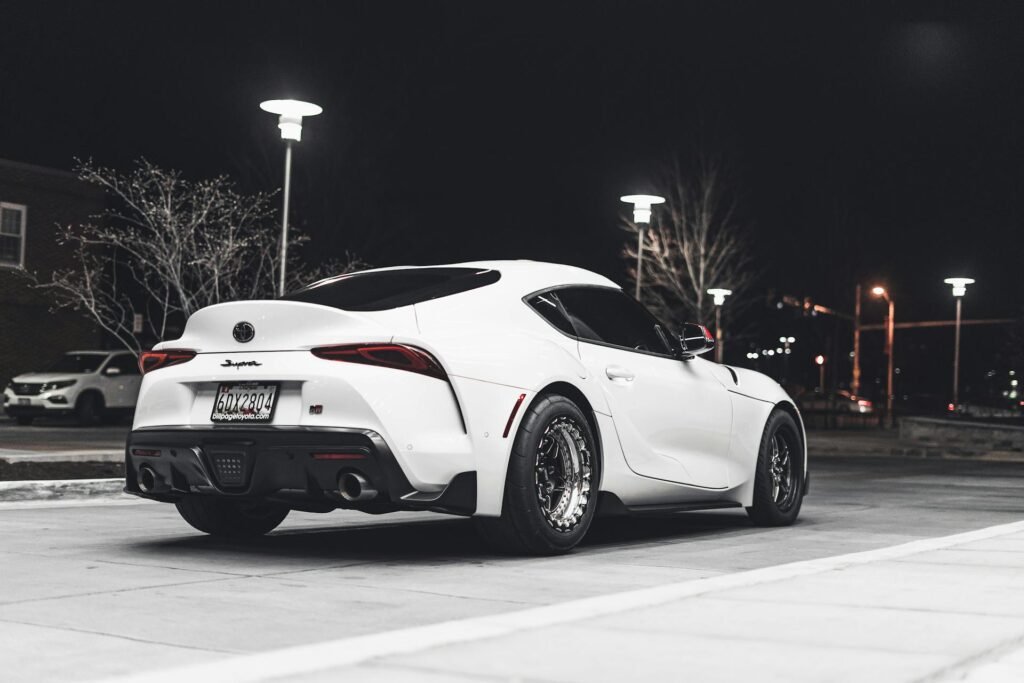
More Articale
MG ES5 EV Coming to Pakistan – International Features
GWM Tank 500 PHEV Arriving Pakistan – International Specs & Features
Capital Smart Motors Signs MoU with Geely to Launch NEVs in Pakistan
ask anything




